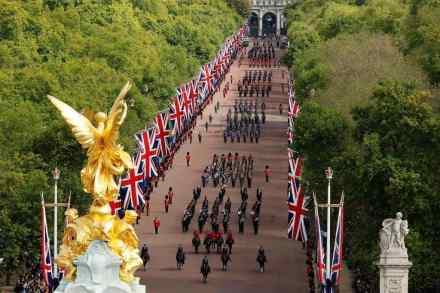The Queen’s funeral was a fitting send off for Elizabeth the Great
In the Christian tradition, which allows for a protracted gap between death and burial, there is often time for initial feelings of shock and grief to give way to other emotions – fond recall, gratitude for the contribution of the departed. But a funeral always returns us to sorrow. And deep sorrow was the abiding emotion today at the state funeral of Her Majesty Queen Elizabeth II. The applause that rang out along parts of the route when her body was conveyed back to Buckingham Palace – or the friendships that sprang up in the queue to see her lying in state in Westminster Hall – were rightly seen as





















